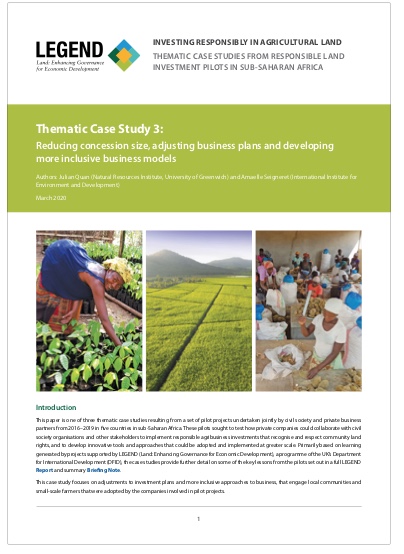Reducing concession size, adjusting business plans and developing more inclusive business models
This paper is one of three thematic case studies resulting from a set of pilot projects undertaken jointly by civil society and private business partners from 2016–2019 in five countries in sub-Saharan Africa. These pilots sought to test how private companies could collaborate with civil society organisations and other stakeholders to implement responsible agribusiness investments that recognise and respect community land rights, and to develop innovative tools and approaches that could be adopted and implemented at greater scale.


